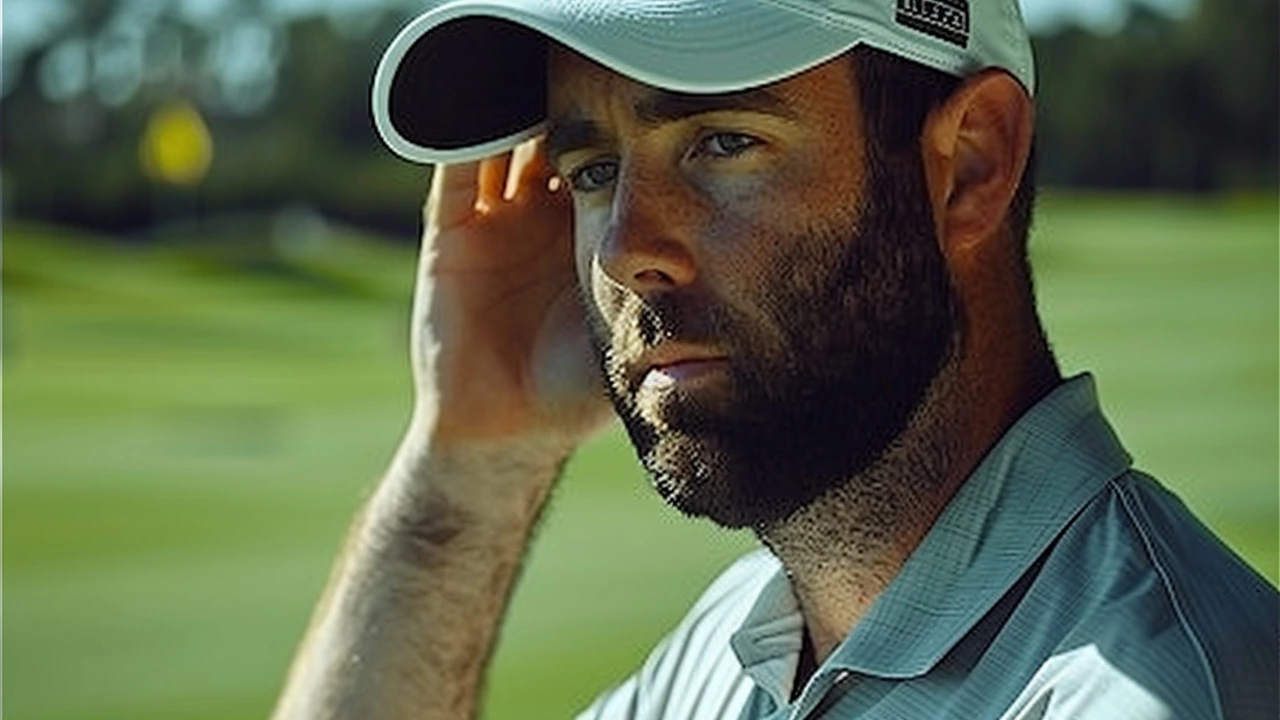Scottie Scheffler's Arrest Raises Serious Questions About Police Conduct
In the weeks following the arrest of professional golfer Scottie Scheffler, new evidence has come to light that calls into question the official account provided by the Louisville Metro Police Department. Scheffler, who holds the esteemed position of being number one on the PGA Tour, found himself at the center of a legal maelstrom that might not be as clear-cut as initially reported.
The Incident at Valhalla Golf Club
On the day in question, Scheffler was attempting to gain access to the Valhalla Golf Club in Kentucky, where the PGA Championship was being held. According to the police report, Scheffler tried to drive through the scene of an ongoing accident in his effort to reach the course. The report further alleged that he hit and dragged a police officer with his vehicle during this attempt. However, newly released video footage from the Louisville Metro Police Department paints a very different picture.
The Contradictory Evidence
The security footage shows Scheffler approaching the entrance to the club slowly and cautiously. Far from the aggressive behavior described in the police report, the video captures a composed individual who complies with the officers’ instructions after being stopped. Scheffler is seen being detained without incident, dispelling the notion that he assaulted an officer by hitting and dragging him with his vehicle.
Charges and Legal Battle
Despite the disturbing discrepancy, Scheffler faces several charges: second-degree assault of a police officer, reckless driving, and third-degree criminal mischief. These serious allegations carry weighty consequences, but Scheffler has pleaded not guilty, describing the entire episode as a 'big misunderstanding.' His defense points to the video evidence as a cornerstone of their case, arguing that the police report is fraught with inaccuracies.
Officer's Non-Compliance with Protocol
Additionally, it has been revealed that the arresting officer, Detective Bryan Gillis, did not activate his body camera, a protocol mandated for such situations. This breach of procedure raises further concerns about the integrity of the arrest and the truthfulness of the police report. The police department has since taken corrective action against Detective Gillis, but the question remains: why was the body camera, a crucial tool for transparency, not activated?
Impact on Scheffler's Career
Interestingly, despite the arrest, Scheffler went on to compete in the PGA Championship later that day, performing impressively to tie for eighth place. While his remarkable focus and skill on the green are to be lauded, the arrest has undeniably cast a shadow over his professional journey. The incident has led to a broader conversation about the relationship between high-profile athletes and law enforcement, adding another layer of complexity to Scheffler's already storied career.
The Broader Implications
This incident has broader implications beyond just the world of professional golf. It highlights systemic issues related to police conduct and the reliability of official reports. The discrepancies between what the video evidence shows and what was reported bring into sharp focus the need for accountability and transparency in law enforcement. It also underscores the importance of adhering to body camera protocols, an essential measure to ensure unbiased documentation of police interactions.
The Road Ahead
As Scottie Scheffler and his legal team prepare for the upcoming court proceedings, the golf world watches with bated breath. The stakes are high, not only for Scheffler’s personal and professional life but also for public trust in law enforcement practices. The court's decision will resonate beyond the boundaries of the golf course, influencing public perceptions and potentially inspiring calls for reform in police accountability measures.
